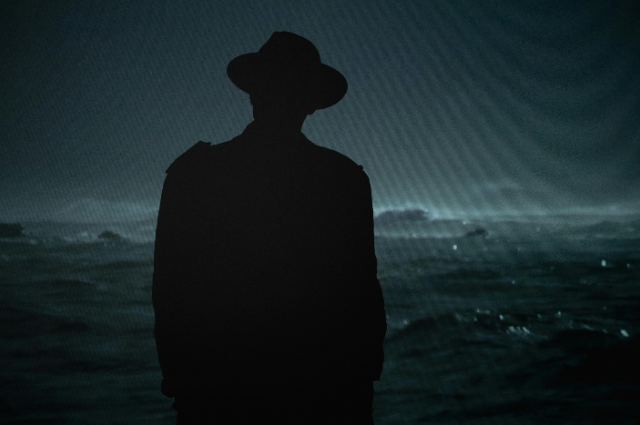
In the fall of 1781, the British slave deliver Zong became a floating microcosm of hell, adrift in the becalmed waters of the Caribbean. Having departed from the coast of Africa with a human shipment of 442 enslaved Africans—greater than double its secure capacity—the ship changed into a theater of death and sickness. The conditions of the Middle Passage were infamously brutal; however, the voyage of the Zong had descended into a specific nightmare. Due to gross navigational errors, the group had ignored their vacation spot of Jamaica and sailed aimlessly for weeks, significantly depleting the deliver of clean water. Sickness changed into rampant, and over sixty enslaved Africans and seven group contributors had already perished. Faced with a dwindling water supply and a demise "cargo," Captain Luke Collingwood and his officers convened to come to a decision, one that would be guided not by means of morality or human decency, but by using the cold, monstrous logic of a maritime insurance policy. The preference they made would result in a massacre so calculated and so merciless that its subsequent legal proceedings would send a shockwave through the British Empire.
The scary calculus that caused the bloodbath changed into rooted in the 18th-century law of "popular average," a precept of maritime coverage that allowed a ship's captain to sacrifice a part of the shipment in an emergency to save the rest. Critically, this coverage policy drew a sharp distinction between special kinds of loss. If an enslaved character died from "natural reasons" consisting of sickness, disorder, or starvation, the economic loss fell upon the deliver’s proprietors. If, however, an enslaved character changed into "jettisoned"—deliberately thrown overboard—as an essential degree to save the deliver or the remainder of its shipment during a crisis, then the owners may want to document a claim with their insurers for the loss of their assets. On November 29, 1781, Captain Collingwood declared that the water scarcity constituted such an emergency. Arguing that it is better to sacrifice a few for the protection of the relaxation, he ordered the team to start throwing enslaved Africans into the ocean. Over the next three days, 132 residing guys, women, and children have been systematically murdered, shackled, and thrown into the Atlantic Ocean. The very last, damning element of this atrocity is that once the primary day of killing, the deliver became blessed with rainfall that replenished the water barrels, but the team continued the bloodbath to its grim end.
Upon the Zong's return to Britain, the deliverers' owners, the Gregson slave-buying and selling syndicate of Liverpool, filed a declare with their insurers for the loss of their 132 "jettisoned" slaves for £30 each. The insurers refused to pay, and the resulting dispute, Gregson v. Gilbert, was brought earlier than a commercial courtroom in London. What followed turned into no longer a homicide trial, but an insurance dispute. The complaints did not situate the morality of the act or the humanity of the sufferers; the primary prison question was definitely whether the massacre had been a legitimate and necessary commercial enterprise decision under the terms of the insurance policy. The arguments made in the court docket laid bare the absolute depravity of the slave alternative. The Solicitor General, John Lee, arguing on behalf of the shipowners, infamously declared to the jury, "What is this that declares human people have been thrown overboard? This is a case of chattels or items. It is a case of throwing over horses... The question is, was there not a necessity for throwing them over?" In the preliminary trial, the courtroom agreed, finding in favor of the shipowners and legally sanctioning the mass murder as an appropriate fee for doing business.
While the group of the Zong could never face a homicide trial, the public revelation of their moves has become a pivotal moment in the fight in opposition to slavery. The story of the bloodbath was introduced to the eye of Granville Sharp, a main abolitionist, with the aid of the freed slave and author Olaudah Equiano. Horrified, Sharp tirelessly worked to expose the case, trying to convey a personal prosecution for homicide in opposition to the crew. Although he failed within the courts, he succeeded in making the Zong a topic of global outrage and an effective symbol for the abolitionist movement. The case provided a stark, irrefutable instance of the proper nature of slavery: a device that legally and philosophically converted people into insurable shipment, whose lives can be weighed against income and loss on a balance sheet. By decreasing the act of mass murder to a chilly, business dispute, the British felony machine inadvertently found out the utter moral bankruptcy of the entire group. The story of the Zong became a rallying cry, a bad and plain truth that helped provoke public opinion and fueled the long, laborious marketing campaign that would, in the end, cause the abolition of the British slave trade.
References-
- Zong massacre — https://en.wikipedia.org
- The Zong Massacre Trial — Museum of London — https://www.londonmuseum.org.uk
- The Zong: A Massacre, the Law and the End of Slavery — Royal Museums Greenwich catalogue entry for James Walvin’s book — https://www.rmg.co.uk/
- The Zong Massacre: what the dark episode meant for the British slave trade and abolition — HistoryExtra — https://www.historyextra.com
